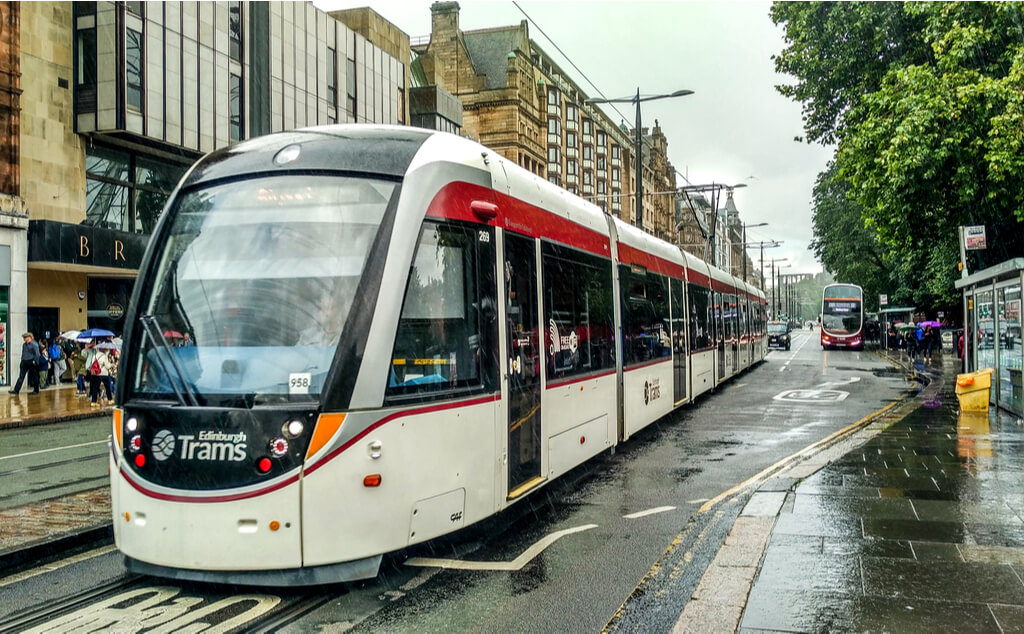Beyond Agile

The vision was a new public tram system to rival any in Europe, linking Edinburgh city centre with both the waterfront at Leith and Edinburgh airport. The project promised not only better transport links, but also a reduction in traffic congestion and carbon emissions.
Unfortunately, what has eventually delivered was a tram line that covered half the original planned network, and cost more than double the amount earmarked. It also took twice as long as anticipated to build.
The traffic nightmare caused by many vital roads in the Scottish capital being turned into a construction site for almost seven years lead David Mackay, chairman of Transport Edinburgh Limited to brand the project “hell on wheels”. So what went wrong?
As is often the case with big projects, the reasons for its troubles were varied. But there seems to have been a series of failures in effective decision-making at many stages of the venture. Projects such as these being undertaken in a world that is increasingly confusing and unpredictable.
Enterprises experience frequent disruptive changes arising from technology, globalization, economics and society. In such circumstances, the timescale of a large scale, complex project means that the vision at inception might differ wildly from the reality at completion.
How can we make decisions about such major initiatives more effectively? We believe that how we make decisions and manage projects should depend on the balance between what we know, what we don’t know and what we think we know (i.e our assumptions). In other words, strategic decision making about projects needs to become more discovery-led.
Discovery-led decision-making is a shift to a more fluid, iterative approach more suited to dynamic contemporary contexts.
Discovery-led decision-making applies a cycle of experimentation, scaling & re-framing to make meaningful progress when confronted with confusing situations.
This cycle enables you to interpret the information available to you, frame appropriate choices and convert chosen ideas into reality by exercising control and coordination appropriately – and letting go of them, if necessary.
Experimentation
When our unknowns and assumptions dominate our knowns, we should Experiment. Experimenting helps us convert unknowns and assumptions into knowns, through generating just enough insight, testing assumptions and trialling approaches.
When the world is harder to predict, there is benefit in moving from analysis to action faster. Action generates relevant information which can help drive a project forwards. Experimentation can take many different forms.
Starwood Hotels and Resorts Worldwide used the virtual world Second Life to experiment with the brand concept of a new hotel venture. By enlisting the Second Life community, it was able to get valuable real-life feedback on the in-hotel experience which led to design changes in the plans for the hotels that were actually built.
Scaling
When we have reduced our unknowns and assumptions to a level that we can tolerate, and we’ve figured out what works, we then need to Scale. Scaling recognizes the distinction between a business model (how the project will create value) and a management model (a particular way of working, with an associated mindset, habits and behaviours).
Scaling helps us spread solutions that work more widely. When scaling, choices need to be made about employee autonomy from total standardization, (i.e. a top-down approach with little or no autonomy), to a middle-out approach where employees use their discretion about how things are done.
Lindbäcks Bygg is a Swedish family-owned construction company that operates extremely successfully at the standardized end of the spectrum to design and build large scale modular housing. Huge patented machines construct highly customizable building frames to any level of complexity.
Lindbäcks’ model allows them to adopt a ‘lean production’ method of working, where every step of the process has been streamlined and waste and inefficiency have been minimized.
Framing
Finally, we need to beware of a trap peculiar to fast-changing environments: namely, solving the wrong problem precisely (what have been called ‘Type III’ errors). To minimize the risk of falling into this trap, we periodically need to Frame. Framing cautions of an over-reliance on existing knowledge – dangerous in a fast-changing environment – and the pitfalls of ‘Type III’ errors, where we approach situations with a blinkered perspective.
Sometimes we can be so caught up in trying to find the solution to a problem that we fail to see that the answer actually lies in solving a different problem. An illustration of this can be seen in the story of the Kremer prize.
This was a prize of £50,000 (over £800,000 in today’s money) first offered in 1959 to the first person to build and fly a human-powered plane around two markers half a mile apart. Nearly two decades later the prize money remained unclaimed, despite scores of unsuccessful attempts.
It was American aeronautical engineer, Dr. Paul MacCready, who realized that everyone was too hung up on the theoretical aspects of the challenge. Instead of solving the problem of how to power it, he focused on solving the problem of how to (re-)build it.
Building and testing minimally viable proof-of-concept planes until he was successful and claimed the prize with his Gossamer Condor plane, now displayed in the Smithsonian National Air & Space Museum.
These three cycles (experimenting, scaling, framing) are similar to agile project management ‘sprints’. However discovery-led decision-making adds further nuance to an agile philosophy by advocating three different modes of decision making which require distinct types of sprint: accompanied by different types of thinking, different areas of focus and different attitudes to risk.
To find out more about the discovery-led decision-making framework, buy Strategic Decision Making: A discovery-led approach to critical choices in turbulent times published by Kogan Page in January 2018.
Ben Shenoy explores, decodes and narrates how behavioural science can untangle organizational dilemmas in perplexing times. He is a Visiting Professor at the London School of Economics and Director of the Business Insights Lab at the University of Surrey. Ben holds a PhD in Organizational Behaviour from Harvard Business School. He can be found online at BenShenoy.com and @BenShenoy.
Simon Haslam is a Chartered Director and strategy consultant, and co-owns the research and consulting firm FMR Research. He is Chair of the Academic Fellows in management consulting for the International Council of Management Consulting Institutes and is Programme Lead for strategy at the Institute of Directors. Simon holds a PhD from Strathclyde Business School. He can be contacted through his personal website simonhaslam.com.




